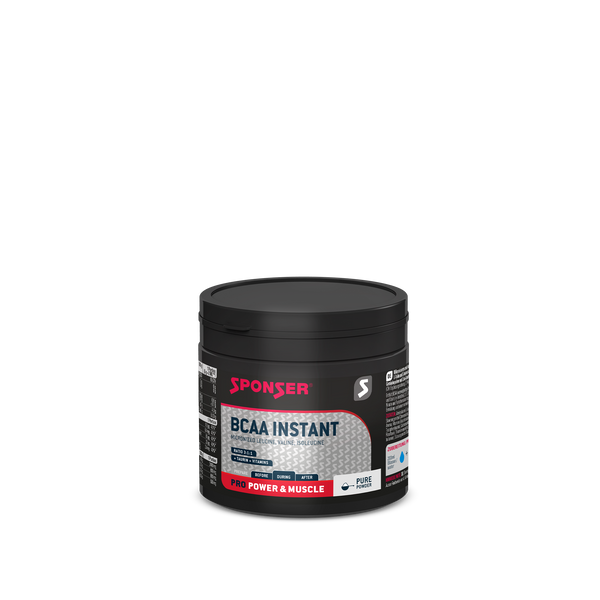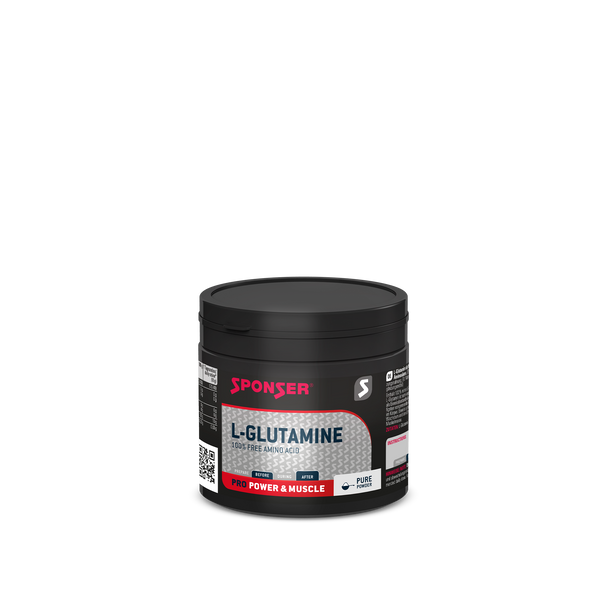
Photo credit: SPONSER SPORT FOOD AG
Amino acids: importance, benefits and function
Amino acids are the basic building blocks of the body. They are permanently converted in the body, i.e. they are broken down and rebuilt. Amino acids are involved in almost all metabolic processes in humans and are therefore indispensable for a healthy, immune-competent body. As protein building blocks, they form muscles, organs, skin and hair, and are also components of enzymes, hormones and immune cells. A distinction is made between essential, non-essential and conditionally essential amino acids. In contrast to the latter two, the essential amino acids cannot be produced by the body itself and must therefore be supplied through the diet.
BCAA and L-glutamine and their function in sports
The essential amino acids include the branched-chain amino acids (BCAAs) leucine, isoleucine and valine. BCAAs are also increasingly burned by the body during exercise for energy use, which can be at the expense of the body's own muscle tissue. The body cannibalises itself to a certain extent. An additional BCAA intake can preserve the body's own reserves and thus also promote recovery. For this reason, BCAAs have an important function in sports. The conditionally-essential amino acid L-glutamine is the most abundant amino acid in the muscles. Its concentration decreases after strenuous training and competitions. If L-glutamine is specifically added after exhausting athletic exertion, this can have a positive effect on the muscles, the replenishment of glycogen stores, the intestinal flora and the immune system.
Related articles
overview » amino acids by SPONSER
on » amino acids
shop » power & muscle























